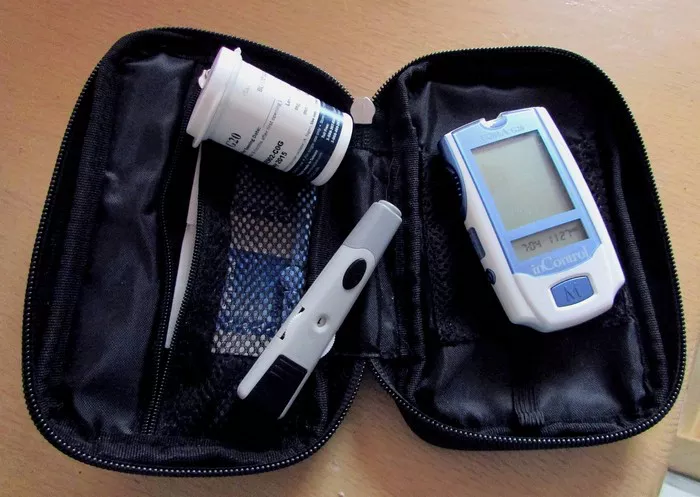Maintaining stable blood sugar levels is crucial for overall health, especially for individuals with diabetes or those at risk of developing it. Fluctuations in blood sugar can lead to various health complications, including fatigue, dizziness, and even long-term damage to organs. While managing blood sugar levels typically involves long-term lifestyle changes such as diet and exercise, there are also strategies that can provide immediate relief when levels spike. In this article, we explore effective methods to lower blood sugar promptly and safely.
Understanding Blood Sugar and Its Importance
Before delving into techniques to lower blood sugar, it’s essential to understand what blood sugar is and why maintaining it within a healthy range is crucial for overall well-being. Blood sugar, or glucose, is the primary source of energy for cells in the body. It comes from the foods we eat, primarily carbohydrates, which are broken down into glucose during digestion.
The body tightly regulates blood sugar levels to ensure they remain within a narrow range. When blood sugar levels rise, such as after eating a meal, the pancreas releases insulin, a hormone that helps cells absorb glucose from the bloodstream. This process keeps blood sugar levels from getting too high. Conversely, when blood sugar levels drop, the pancreas releases another hormone called glucagon, which signals the liver to release stored glucose into the bloodstream, preventing levels from dropping too low.
However, for individuals with diabetes, this regulatory system may not function correctly. In type 1 diabetes, the pancreas doesn’t produce insulin, while in type 2 diabetes, the body becomes resistant to insulin’s effects. As a result, blood sugar levels can become too high (hyperglycemia) or too low (hypoglycemia), both of which pose health risks.
Immediate Strategies to Lower Blood Sugar
When blood sugar levels spike unexpectedly, it’s essential to take immediate action to bring them back into a healthy range. Here are several effective strategies:
Hydrate with Water: Drinking water can help flush excess sugar from the bloodstream through urine. Aim to drink at least 8 ounces of water, and avoid sugary beverages like soda or fruit juice, which can cause blood sugar levels to rise further.
Exercise: Physical activity can help lower blood sugar levels by increasing insulin sensitivity, allowing cells to absorb glucose more effectively. Engage in moderate-intensity exercise such as brisk walking, cycling, or swimming for at least 30 minutes.
Consume Apple Cider Vinegar: Some studies suggest that apple cider vinegar may help lower blood sugar levels by improving insulin sensitivity and slowing the digestion of carbohydrates. Mix one to two tablespoons of apple cider vinegar with water and drink it before meals.
Eat High-Fiber Foods: Fiber slows the absorption of sugar into the bloodstream, helping to stabilize blood sugar levels. Opt for fiber-rich foods such as vegetables, fruits, whole grains, beans, and legumes.
Monitor Portion Sizes: Be mindful of portion sizes, especially when consuming carbohydrates, as large portions can cause blood sugar levels to spike. Use measuring cups or visual cues to estimate appropriate serving sizes.
Practice Stress-Relief Techniques: Stress can elevate blood sugar levels through the release of stress hormones like cortisol and adrenaline. Engage in relaxation techniques such as deep breathing, meditation, yoga, or tai chi to help lower stress levels.
Get Adequate Sleep: Lack of sleep can disrupt hormone levels and lead to insulin resistance, contributing to higher blood sugar levels. Aim for 7-9 hours of quality sleep per night to support overall health and blood sugar regulation.
Consider Medications: For individuals with diabetes, medications such as insulin or oral hypoglycemic agents may be necessary to lower blood sugar levels promptly. Follow your healthcare provider’s recommendations regarding medication use and dosage.
Chew Sugar-Free Gum: Chewing sugar-free gum can stimulate saliva production, which may help reduce blood sugar levels after meals by promoting the removal of glucose from the bloodstream.
Limit Intake of Simple Carbohydrates: Foods high in simple carbohydrates, such as white bread, white rice, and sugary snacks, can cause rapid spikes in blood sugar levels. Opt for complex carbohydrates that are digested more slowly, such as whole grains, vegetables, and legumes.
Take a Walk After Meals: Going for a short walk after meals can help lower blood sugar levels by increasing glucose uptake into muscles and improving insulin sensitivity. Aim to walk for 10-15 minutes after each meal.
Drink Green Tea: Green tea contains compounds called catechins, which may help improve insulin sensitivity and lower blood sugar levels. Enjoy a cup of green tea regularly as part of a healthy diet.
Include Protein in Meals: Protein-rich foods can help slow the absorption of sugar into the bloodstream and promote satiety, reducing the risk of blood sugar spikes. Include sources of protein such as lean meat, poultry, fish, eggs, tofu, and legumes in meals and snacks.
Check Blood Sugar Levels Regularly: Monitoring blood sugar levels regularly can help you identify patterns and make informed decisions about your diet, exercise, and medication regimen. Use a glucometer to check your blood sugar levels as recommended by your healthcare provider.
Seek Medical Attention if Necessary: If blood sugar levels remain consistently high despite lifestyle modifications, or if you experience symptoms of hyperglycemia such as excessive thirst, frequent urination, or fatigue, seek medical attention promptly.
Conclusion
Maintaining stable blood sugar levels is essential for overall health and well-being, particularly for individuals with diabetes or those at risk of developing it. While long-term lifestyle changes such as diet and exercise play a crucial role in managing blood sugar levels, there are also strategies that can provide immediate relief when levels spike unexpectedly.
By staying hydrated, engaging in physical activity, consuming apple cider vinegar, eating high-fiber foods, and practicing stress-relief techniques, among other strategies, individuals can help lower blood sugar levels promptly and safely. It’s essential to work closely with healthcare providers to develop a personalized plan for managing blood sugar levels and to seek medical attention if necessary.
By incorporating these immediate strategies into daily life, individuals can take proactive steps to maintain optimal blood sugar control and reduce the risk of complications associated with high blood sugar levels. Remember, consistency and diligence are key to achieving and maintaining stable blood sugar levels over time.



























